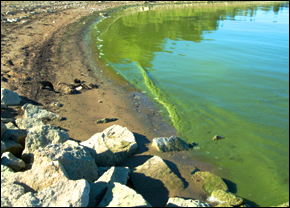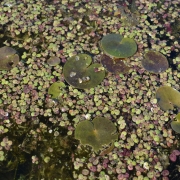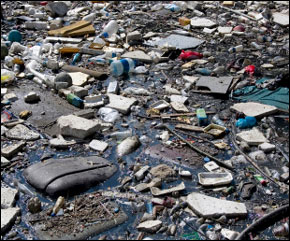Great Lakes Cleanup to Get $2.2 Billion in Federal Funding
The EPA plan released Sunday aims to clean up top pollution sites; block toxic runoff from cities and farms; restore sensitive wetlands; and establish a “zero tolerance policy” toward invasive species like the Asian carp.
 The U.S. Environmental Protection Agency has laid out the details of a five-year blueprint that will clean and protect the world’s largest freshwater source from its “150 years of abuse.”
The U.S. Environmental Protection Agency has laid out the details of a five-year blueprint that will clean and protect the world’s largest freshwater source from its “150 years of abuse.”
EPA Administrator Lisa P. Jackson unveiled the plan Sunday at a meeting with Great Lakes politicians including Wisconsin Gov. Jim Doyle and Ohio Gov. Ted Strickland—co-chairs of the Council of Great Lakes Governors.
“This action plan outlines our strategy to protect the environmental, human health, and economic interests of the millions of people who rely on the Great Lakes,” Jackson said.
Specific goals of the Great Lakes Restoration Initiative Action Plan include:
- Collecting or preventing the release of 45 million pounds electronic waste, 45 million pills of unwanted medicines, and 4.5 million pounds of household hazardous waste;
- Cleaning up 9.4 million cubic yards of toxic sediment;
- Cutting runoff from cities and farms and improving habitat in lake watersheds;
- Reducing algae blooms at Great Lakes beaches to reduce the number of beach closures; and
- Performing a comprehensive assessment of the Great Lakes’ entire 530,000 acres of coastal wetland, including 10,000 miles of shoreline.
Congress has authorized $475 million for improving the Great Lakes ecosystem this year, $60 million of which would go to the fight against the invasive Asian carp. Earlier this month, President Barack Obama proposed to direct $300 million of his 2011 budget request to the plan. The Great Lakes Restoration Initiative assumes similar funding allocations in each of the plan’s subsequent years.
While most environmental groups have praised the plan, one group leader questioned the amount of attention being given to Asian carp to the detriment of broader lake protection efforts.
Jeff Skelding, campaign director of the Healing Our Waters-Great Lakes Coalition, warns that too much funding is being diverted to the fight against the carp, The Associated Press reported. He also called on President Obama to match Congress’ 2010 funding level of $475 million in his 2011 budget request.
Mich. Sen. Patty Birkholz, R-Saugatuck Township, said she supports efforts to block invasive species but does not want to see large portions of the Great Lakes Restoration Initiative diverted towards the effort, The Grand Rapids Press reported. Birkholz, who’s district includes 25 miles of Lake Michigan Shoreline and the popular harbor village of Saugatuck, said she’d rather see other funding used for that effort.
Sources: Great Lakes Restoration Initiative Action Plan (PDF), EPA news release, The Associated Press, Grand Rapids Press












Leave a Reply
Want to join the discussion?Feel free to contribute!